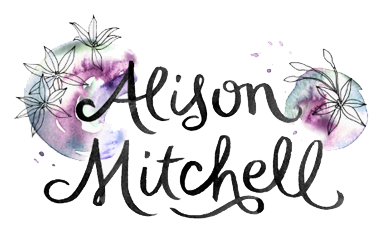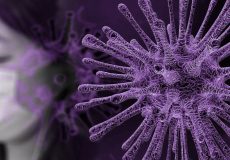The Importance of Gut Health
Gut Health
All disease begins in the gut – Hippocrates.
Your digestive system is more important for your overall health than you probably realise. It’s so much more than whether you do your number two’s regularly: digestive health impacts on your immune system, inflammation, hormone balance, mood, energy, skin, brain health and more!
Naturopaths and other holistic health practitioners have long been banging on about the importance of ‘healing the gut’ for a wide range of digestive disorders and overall wellbeing. In the last few decades, research into the importance of a healthy digestive bacteria balance (our ‘microbiome’) and digestive lining have been booming.
Put simply, the digestive system is a hollow tube ranging from mouth to anus, and is actually a continuation of our skin (just in a different format). You can imagine it like you’re a donut! And think about this: everything inside your digestive tract is actually outside of your body. Along this tube the surface of the skin changes, e.g. in the stomach there is a thick coating of mucous which helps to protect against the strong acids that are created there, and in the intestines the surface changes, developing a lot of finger like folds and protrusions called villi. Villi are designed to increase the surface area for both absorption of nutrients and room for immune cells. Almost like in a factory chain, other glands and organs will come into play, depositing enzymes and acids at various points that help us break down our food more effectively.
The bugs that live in your gut
If I told you that your body contains 10 times more bacteria than human cells, would you be reaching for the soap? Well you don’t have to worry because the majority of these bugs are working to keep you healthy. They are actually so interconnected with us, that we are now considered to be a ‘super-organism’ (1) (2).
The majority of the bacteria exist in your digestive tract, and there they work to detoxify harmful chemicals, process nutrients (and in some cases they actually create nutrients!), control the unfriendly bacteria that live there (yes there are usually always some bad guys present, about 15%, but the state of your good bugs determines whether the baddies cause a problem), control the immune system, produce energy for the rest of the body and much, much more.
The Goodies
There are over 400 known types of bacteria within our digestive tract. In some people there are more, and in others who may be eating a processed diet or have had damage to their gut flora, the diversity of these bacteria are significantly reduced. Interestingly, the bacteria in our gut are different throughout the different stages of our life.
Our friendly bacteria can be damaged by certain medications and lifestyle habits. Antibiotics are one of the most well known causes of damage to our friendly bacteria, and recently it has been discovered that some of our good bacteria may never recover after a course of antibiotics* (3).
Antibiotics, while often over used can sometimes be necessary and in some cases are life savers. Limiting their use and ensuring that if taken they are used correctly can help to prevent the development of antibiotic resistance. Consider your options before taking antibiotics, and if you do have to take antibiotics then see a practitioner who can guide you on how best to mop up at the damage.
Feeding the Good Guys
Whereas Probiotics are the organisms, Prebiotics are their food. The use of prebiotics is often neglected, but it’s an important part of recolonising your gut. You can get various isolated prebiotics in supplement form, or you can consume a variety of foods which contain these compounds, particularly those high in soluble fibre.
Fermented foods are another key tool in keeping your digestive system happy. The act of fermentation allows beneficial bacteria that naturally live on the food to grow, and it also makes a whole host of nutrients within the food more bioavailable (meaning we can get more out of it). You can buy fermented food, or grow it yourself.
You should aim to have a variety of fermented foods~ and prebiotic foods consistently.
Regularly chow down on these to keep your good bugs thriving*:
- Almonds
- Apricots
- Asparagus
- Avocado
- Banana (especially green)
- Beetroot
- Garlic
- Jerusalem artichokes
- Kefir~
- Kimchi~
- Kombucha~
- Lentils
- Plantain
- Pumpkin
- Sauerkraut~
- Sweet Potato
- Witlof and Wombok
- Yoghurt (free from added sugar and chemicals)~
- Zucchini
* If you have Fructose Malabsorption, some of these foods may cause digestive discomfort. Seek advice from your health practitioner if you are unsure.
The Baddies
There are a huge range of unfriendly pathogens that if allowed to get out of control can cause all sorts of havoc in your digestive system. Some can even cause trouble with your mood. Chronic infections can result in a wide variety of symptoms that are often unexplained such as aches and pains, fatigue, brain fog, unexplained inflammation and recurrent infections –fibromyalgia and chronic fatigue syndrome are just a couple of conditions that can have a chronic infection as an underlying driver (4) (5).
There are a huge range of organisms that lie dormant in our digestion: many, many forms of bacteria, viruses, protozoa (e.g. malaria and giardia), fungi, yeasts and parasites can exist in our gut. Some of them can be deadly killers, and others may not be lethal but can result in a variety of nasty symptoms. Our immune system, digestive juices and the presence of our good bugs are what keep it all in check.
The Gut and Your Immune System
“The immune system present in the gut makes more immunological decisions in a day than the rest of the immune system does in a lifetime”. (6)
If your immune system isn’t behaving itself properly, you might want to consider that your digestive system is the culprit.
Your digestive system has a special mucosal lining over the surface of your intestines, and the health of your gut flora (the complex, extremely important colony of bacteria within your digestive system, also known as the microbiome) has a huge amount of immune decisions to make on a daily basis – it has to deal with bacteria, viruses and food, and decide each time whether it is a friend or foe. It is via this mechanism that your gut health can contribute towards skin conditions such as eczema and psoriasis as well as autoimmune conditions such as SLE (Lupus), Rheumatoid arthritis, Graves disease and more.
The gut reports to the immune system
There is a special type of cell within the digestive system called a dendritic cell. This cell is responsible for determining whether our immune system should be on high alert or not. Occasionally this cell will extend a little feeler (almost like a tentacle) and take a handful of whatever is in your digestive system to examine, to then report back to the rest of the immune system whether everything is okay or not. This can explain why your diet can have an effect on allergic conditions such as hayfever and eczema, as well as autoimmune conditions (7).
Immune cells in the gut
There are also a lot of other players involved in the gut, such as the immune cells Immunoglobulin A (sIgA) and certain T lymphocytes. sIgA helps to protect the epithelial layer from being inhabited by bacteria and viruses. This helpful immunoglobin is actually produced by lymphocytes (a type of white blood cell) which are actually created by Bifidobacteria (a good bacteria that exists mostly in the colon). Unfortunately, Bifidobacteria are easily damaged, especially by antibiotics.

Enzymes do more than digest food
When you think about digestive enzymes, you’ll probably be thinking that they’re there to break down your food so it’s primed for absorbing. They also have another important role to play, and that’s in breaking down substances that might be harmful to your immune system. Due to poor eating habits, the secretion of enzymes is compromised in a large proportion of people. Implementing habits such as chewing each mouthful more and taking time to enjoy and concentrate on your meal are helpful for stimulating the cephalic phase of digestion – where your brain tells the rest of the digestive system to get ready for food, and consequently more enzymes and acids are produced.
The Gut and Your Mood
The state of our intestinal lining and the balance of bacteria within our digestive system have a major role to play in the production of our neurotransmitters: chemical transmitters that tell our brain whether we should be feeling such ways as happy, sad, agitated, or calm.
When the balance of our gut bacteria (collectively referred to as the microbiome) is affected, this can affect your mood. Studies have found that the microbiome can have a major impact on stress levels and anxiety (8). In fact, by treating imbalances in our microbiota, it is possible to support a wide range of mental health disorders (9), (10), (11), (12), (13).
The second brain
The nerves in your digestive system are constantly speaking to your central nervous system. If your gut is irritated for some reason – say you’ve eaten something that you’re intolerant to (like gluten, for example), you’ve generally got a bad diet, there’s an imbalance in your microbiome (that’s your collective gut bacteria, remember) or you’ve got an infection – this can create an inflammatory reaction and will certainly make you irritated as well.
We know that depression is both associated with, and worsened by inflammation. This inflammation in the brain can be driven by inflammation in the gut, which can be caused by intestinal permeability (leaky gut) and bacterial imbalances (dysbiosis). Treating leaky gut can help reduce the severity of depression (10), (14), (15), (16), (17).
Neurotransmitters in our gut
Serotonin is produced in large amounts in our digestive system. In people with Irritable Bowel Syndrome (IBS) there is too much serotonin in their digestive system. This is why antidepressants known as SSRIs (selective serotonin reuptake inhibitors) can improve the symptoms of IBS: these act by reducing the amount of serotonin taken into cells in the rest of our body which allows more to get into the brain. However in some instances anti-depressants can affect the gut negatively, because if you weren’t making enough serotonin in the gut in the first place, you can end up with even lower levels in the digestive tract and so it can become irritated, affectively you’ll get a depressed gut (18), (19).
A vicious cycle
When your gut is upset, you feel upset. But stress can affect your digestive system just as much as it affects your mood. It can impair the secretion of digestive acids, slow down the motility of the gut, allows the unfriendly bacteria to grow, reduces your friendly bacteria and exacerbates intestinal permeability (leaky gut) (20), (14). This is a recipe for an unhappy digestive system, and as you know this can then go on to send more messages to your brain: so you can see how the cycle continues.
People with gut problems are more likely to experience anxiety and depression. Some studies have found a high proportion of anxiety in those with gut conditions such as Irritable Bowel Syndrome(IBS), Crohn’s disease and coeliac disease (21), (22), (23).
Look after your gut and it will look after you
The body has an amazing ability to heal, if given the right means to do so. If you eat a predominately plant based diet that is free from processed food, get your microbiome happy by feeding the good bugs with prebiotics and occasionally adding in some good bugs with fermented foods and probiotics, you’ll be on the right track to start healing your gut.
Works Cited
| 1. | Sekirov I, Finlay BB. Human and microbe: united we stand. Nature medicine. 2006; 12(7). |
| 2. | Eberl G. A new vision of immunity: homeostatis of the superorganism. Nature: Mucousal Immunity. 2010; 3(5). |
| 3. | Blaser M. Antibiotic overuse: Stop the killing of beneficial bacteria. Nature. 2011 August; 476. |
| 4. | Pimental M, Hallegua D, Chow EJ, Wallace D, Bonorris G, Lin HC. Eradication of small intestinal bacterial overgrowth decreases symptoms in chronic fatigue syndrome: A double blind, randomised study. Gastroenterology. 2000; 118(4). |
| 5. | Maes M, Twisk FN, Kubera M, Ringel K, Leunis JC, Geffard M. Increased IgA responses to the LPS of commensal bacteria is associated with inflammation and activation of cell mediated immunity in chronic fatigue syndrome. Journal of affective disorders. 2012; 136(3). |
| 6. | Mayer L. Mucosal Immunity. Pediatrics. 2003 June; 111(3). |
| 7. | McLean MH, Dieguez Jr D, Miller LM, Young HA. Does the microbiota play a role in the pathogenesis of autoimmune diseases? Gut. 2014 Nov 21. |
| 8. | Cryan JF, O’Mahony SM. The microbiome-gut-brain axis: from bowel to behavior. 2011; 23(3). |
| 9. | Cryan JF, Dinan TG. Mind-altering microorganisms: the impact of the gut microbiota on brain and behaviour. 2012; 13(10). |
| 10. | Maes M, Kubera M, Leunis JC. The gut-brain barrier in major depression: intestinal mucosal dysfunction with an increased translocation of LPS from gram negative enterobacteria (leaky gut) plays a role in the inflammatory pathophysiology of depression. 2008; 29(1). |
| 11. | Maes M, Mihaylova I, Leunis JC. Increased serum IgA and IgM against LPS of enterobacteria in chronic fatigue syndrome (CFS): indication for the involvement of gram-negative enterobacteria in the etiology of CFS and for the presence of an increased gut-intestinal permeability. 2007; 99(1-3). |
| 12. | Maes M, Coucke F, Leunis JC. Normalization of the increased translocation of endotoxin from gram negative enterobacteria (leaky gut) is accompanied by a remission of chronic fatigue syndrome. 2007; 28(6). |
| 13. | Maes M, Leunis JC. Normalization of leaky gut in chronic fatigue syndrome (CFS) is accompanied by a clinical improvement: effects of age, duration of illness and the translocation of LPS from gram-negative bacteria. 2008; 29(6). |
| 14. | Maes M, Kubera M, Leunis JC, Berk M. Increased IgA and IgM responses against gut commensals in chronic depression: further evidence for increased bacterial translocation or leaky gut. 2012; 141(1). |
| 15. | Logan AC, Katzman M. Major depressive disorder: probiotics may be an adjuvant therapy. 2005; 64(3). |
| 16. | Rook GA, Lowry CA, Raison CL. Hygiene and other early childhood influences on the subsequent function of the immune system. 2014. |
| 17. | Drexhage RC, Weigelt K, van Beveren N, Cohen D, Versnel MA, Nolen WA, et al. Immune and neuroimmune alterations in mood disorders and schizophrenia. 2011;(101). |
| 18. | Ruepert L, Quartero AO, de Wit NJ, van der Heijden GJ, Rubin G, Muris JW. Bulking agents, antispasmodics and antidepressants for the treatment of irritable bowel syndrome. 2011; 10(8). |
| 19. | Olden KW. The use of antidepressants in functional gastrointestinal disorders: new uses for old drugs. 2005; 10(11). |
| 20. | Gorard DA, Gomborone JE, Libby GW, Farthing MJ. Intestinal transit in anxiety and depression. 1996; 39(4). |
| 21. | Addolorato G, Mirijello A, D’Angelo C, Leggio L, Ferrulli A, Abenavoli L, et al. State and trait anxiety and depression in patients. 2008; 62(7). |
| 22. | Hillilä MT, Hämäläinen J, Heikkinen ME, Färkkilä MA. Gastrointestinal complaints among subjects with depressive symptoms in the general population. 2008; 28(5). |
| 23. | Filipovic BR, Filipovic BF. Psychiatric comorbidity in the treatment of patients with inflammatory bowel disease. 2014; 20(7). |
| 24. | Ambrose NS, Johnson M, Burdon DW, Keighley MRB. The influence of single dose intravenous antibiotics on faecal flora and emergence of Clostridium difficile. Journal of Antimicrobial Therapy. 1985; 15(3). |
| 25. | Bartlett JG. Antibiotic-Associated Diarrhea. The New England Journal of Medicine. 2002 January; 346(5). |
| 26. | Tan KSW. New Insights on Classification, Identification, and Clinical Relevance of Blastocystis spp. Clinical Microbiology Reviews. 2008; 21(4). |
| 27. | Wellington M, Dolan K, Krysan DJ. Live Candida albicans Suppresses Production of Reactive Oxygen Species in Phagocytes. Infection and Immunity. 2009; 77(1). |
| 28. | Nelson RD, Shibata N, Podzorski RP, Herron MJ. Candida mannan: chemistry, suppression of cell-miediated immunity, and possible mechanisms of action. Clinical Microbiology Reviews. 1991 Jan; 4(1). |
| 29. | Cater RE2. Chronic intestinal candidiasis as a possible etiological factor in the chronic fatigue syndrome. Medical Hyptheses. 1995 Jun; 44(6). |
| 30. | Galland L. Normocalcemia tetany and candidiasis. Magnesium. 1985; 4(5-6). |
| 31. | Nikolic DM. Effects of Candida on insulin secretion of human adult pancreatic islets and possible onset of diabetes. British Journal of Biomedical Science. 2014; 71(2). |
| 32. | Lewith GT, Chopra S, Radcliffe MJ, Abraham N, Prescott P, Howarth PH. Elevation of Candida IgG antibodies in patients with medically unexplained symptoms. Journal of Alternative and Complementary Medicine. 2007 Dec; 13(10). |
| 33. | Bjarnsholt T. The role of bacterial biofilms in chronic infections. APMIS. Supplementum. 2013 May; 136(1-51). |
| 34. | Høiby N, Ciofu O, Johansen HK, Song ZJ, Moser C, Jensen PØ, et al. The clinical impact of bacterial biofilms. International Journal of Oral Science. 2011 Apr; 3(2). |
| 35. | Matzinger P. Essay 1: The Danger Model in Its Historical Context. Scandinavian Journal of Immunology. 2001; 54(4-9). |
| 36. | Lewis K. Persister cells, dormancy and infectious disease. Nature Reviews: Microbiology. 2007 Jan; 5(48-56). |
| 37. | O’Connor SM, Taylo CE, Hughes JM. Emerging infectious determinants of chronic diseases. Emerging Infectious Diseases. 2006 July; 12(7). |
| 38. | Mitov I, Vladimirov B. Helicobacter Pylori Boyanova L, editor. Sofia: Horizon Scientific Press; 2011. |
| 39. | Mizyed I, Fass SS, Fass R. Gastro-oesophageal Reflux Disease and Psychological Comorbidity. Alimentary Pharmacology & Therapeutics. 2009; 29(4). |
| 40. | Shepherd SJ, Gibson PR. Evidence-based dietary management of functional gastrointestinal symptoms: The FODMAP approach. Journal of Gastroenterology and Hepatology. 2010 Feb; 25(2). |
| 41. | Shepherd SJ, Gibson PR. Personal view: food for thought–western lifestyle and susceptibility to Crohn’s disease. The FODMAP hypothesis. Alimentary Pharmacology & Therapeutics. 2005 Jan; 21(12). |
| 42. | Biesiekierski JR, Newnham ED, Shepherd SJ, Muir JG, Gibson PR. Characterization of Adults With a Self-Diagnosis of Nonceliac Gluten Sensitivity. Nutrition in clinical practice. 2014 Apr; 29(4). |
| 43. | Linskens RK, Huijsdens XW, Savelkoul PH, Vandenbroucke-Grauls CM, Meuwissen SG. The bacterial flora in inflammatory bowel disease: current insights in pathogenesis and the influence of antibiotics and probiotics. Scandinavian Journal of Gastroenterology. Supplement. 2001; 234. |
| 44. | Guarner F, Malagelada JR. Gut flora in health and disease. Lancet. 2003 Feb; 361(9356). |
| 45. | Foster JA, McVey Neufield KA. Gut-brain axis: how the microbiome influences anxiety and depression. 2013; 36(5). |
| 46. | Rao AV, Bested AC, Beaulne TM, Katzman MA, Iorio C, Berardi JM, et al. A randomized, double-blind, placebo-controlled pilot study of a probiotic in emotional symptoms of chronic fatigue syndrome. 2099; 19(1). |
| 47. | Hornig M. The role of microbes and autoimmunity in the pathogenesis of neuropsychiatric illness. 2013; 25(4). |










